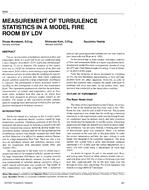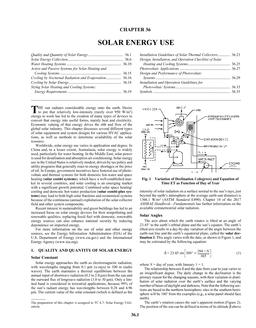A low-Reynolds-number k-epsilon model of turbulence was used for the prediction of natural convection flow in cavities with Rayleigh numbers on the order of 10 to the power 10. The Boussinesq approximation was used for buoyancy, and the buoyancy production terms in the k and epsilon equations were also studied. The results indicate that the computed velocity and temperature profiles and convective heat exchanges by the model are in rather good agreement with the measurements. The influence of the buoyancy production is small on velocity and temperature profiles but is considerably large on the kinetic energy profiles. For the indoor airflow computation, use of the low-Reynolds-number model with buoyancy production terms is recommended so that correct indoor air velocity fields, air temperature distributions, convective heat transfer coefficients, and comfort parameters can be obtained.
KEYWORDS: turbulent flow, calculating, models, Rayleigh number, buoyancy, heat flow, air flow, walls, rooms, temperature distribution.
Citation: ASHRAE Transactions, vol.96, pt. 1, Atlanta, 1990
Product Details
- Published:
- 1990
- Number of Pages:
- 10
- File Size:
- 1 file , 1.2 MB
- Product Code(s):
- D-18442


